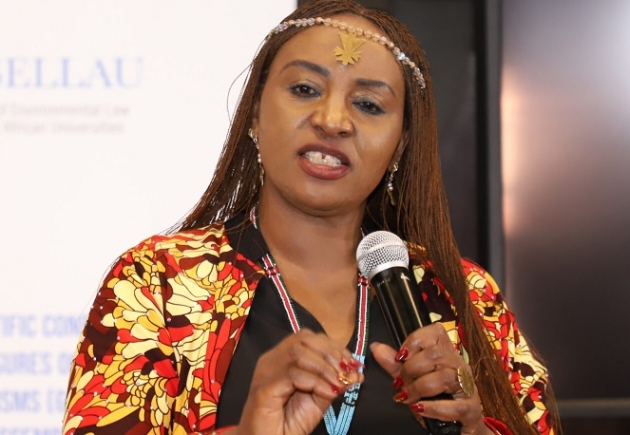
Ghana commended for pioneering agricultural transformation in Africa
Ghana has been lauded as a leader in Africa's drive for agricultural transformation, despite the challenges faced by many nations across the continent.
Dr. Sheila Chugwuju, Executive Director of the Alliance for Science, praised Ghana’s proactive stance on biotechnology, highlighting its strong regulatory framework and commitment to the responsible adoption of genetically modified (GM) crops.
In an interview with Graphic Online on Saturday, December 14, at Lilongwe in Malawi, Dr. Chugwuju commended Ghana’s role as one of the few African countries to develop a clear regulatory system for GM crops. This approach, she noted, includes public consultations to ensure responsible use of biotechnology while mitigating potential risks.
Ghana’s flagship GM crop, Bt cotton, was approved for cultivation in 2011 to boost cotton production and address pest-related challenges. Although adoption has remained limited, discussions continue on the safety, environmental impact, and socio-economic effects of GM crops in the country.
The nation is also exploring other GM crops, such as Bt maize and Bt cowpea, though these are yet to be widely adopted.
Dr. Chugwuju also highlighted the West Africa Centre for Crop Improvement, describing it as one of the world’s leading agricultural research institutes. Additionally, she praised Ghana's commitment to honouring its farmers through the annual Farmer’s Day celebration, underscoring the critical role farmers play in the nation’s economy.
“Ghana celebrates its farmers in a way that few African countries do,” Dr. Chugwuju remarked, emphasizing the importance of such recognition for Africa’s agricultural future.
Despite Ghana’s notable advancements, Dr. Chugwuju acknowledged setbacks in its pursuit of the United Nations Sustainable Development Goal (SDG) on zero hunger.
“Ghana was once on track to meet this goal, but poor leadership and other challenges have slowed progress. However, it remains a beacon for agricultural transformation in Africa,” she noted.
While advocating for GM crops, Dr. Chugwuju stressed that biotechnology alone is not the solution to Africa’s agricultural challenges.
“Farmers need more than GM crops. They need mechanisation, better fertilizers, and access to fair markets,” she explained.
She also called for addressing gender disparities in agriculture, highlighting the barriers women face in accessing resources and technology. “Women are the backbone of African agriculture, yet they are often left behind,” she added.
Furthermore, Dr. Chugwuju underscored the role of technology and digital platforms in enhancing agricultural productivity. “Simple tools, such as platforms for assessing soil quality or managing water resources, can make a significant difference for farmers,” she said.
One of the key barriers to GM crop adoption in Africa, she observed, is misinformation and fear surrounding the technology. Despite scientific evidence affirming the safety of GM crops, many people associate them with health risks.
“People fear what they don’t understand,” Dr. Chugwuju noted, calling for increased public education and open dialogue between scientists, policymakers, and the public to address these concerns. Ghana’s transparent public consultation process on GM crops, she added, serves as a model for other African nations.
Looking ahead, Dr. Chugwuju expressed optimism that more African countries will emulate Ghana’s example in adopting biotechnology and modernizing their agricultural sectors. However, she cautioned that progress must be supported by broader investments in agriculture, including better tools, financing, and infrastructure for farmers.
As Africa confronts challenges such as food insecurity, climate change, and rapid population growth, Dr. Chugwuju urged the continent to embrace modern farming technologies like GM crops as a pathway to unlocking its agricultural potential.
“We need a holistic approach—addressing the entire agricultural ecosystem—to ensure a sustainable agricultural future for Africa,” she concluded.
